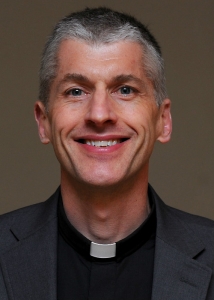 By Pastor Craig Pederson
By Pastor Craig Pederson
If you were asked to describe your faith in one word, what would it be? “That’s impossible!” you might say; faith is too broad and meaningful to be summed up in just one word.
And yet, this is exactly the exercise that was required for a course I took in seminary more than 20 years ago. (Perhaps some of you took that same systematic theology course!)
The exercise involved a process of discernment. Over the course of the semester, you started by writing one full page that articulated the biblical and theological underpinnings of your faith. In subsequent weeks you winnowed it down to a paragraph, and then one sentence, and finally one word.
“Christian freedom is a faithful response, not a lawful duty.”
In the end, my word was “freedom.” It described the movement in my relationships with God and neighbor, from burdens of duty and merit to responses of gratitude and love. My “go-to” verses were ones familiar to many of you: “If you continue in my word, you are truly my disciples; and you will know the truth, and the truth will set you free, … and if the Son makes you free, you will be free indeed” (John 8:31-32, 36), and “For freedom, Christ has set us free” (Galatians 5:1).
This notion of Christian freedom has stuck with me, and has been a profound motivation – and liberation – in my faith life.
AND NOW, AS WE APPROACH the July 4 Independence Day holiday, and the many celebrations of national and civic liberties, I’m inevitably drawn into dialogue (internal, if not external) about what “freedom” means in our context. It can get a bit dicey when we start to mix civic and theological freedoms. Yet as Christians who live in a country with freedom as one of its core foundational principles, we can’t help but swim in this mix.
The Declaration of Independence served as a kind of separation agreement from the rule of external tyranny, and laid out the “inalienable rights” of life, liberty, and the pursuit of happiness. Self-determination and the “consent of the governed” were expressions of this new freedom being declared by the impassioned voices of an emerging new nation. While laudable and inspiring, I want to acknowledge that these impassioned voices did not include women or slaves, nor the voices of indigenous peoples who are labeled as “merciless Indian Savages” within the Declaration itself. That is part of what I wrestle with in trying to understand our national narrative about “freedom.”
“This July 4, we’re experiencing national tensions over refugee detentions, family separations, immigrant travel bans, international trade tariffs, and Supreme Court transitions.”
In On the Freedom of a Christian, Martin Luther said “”A Christian is a perfectly free lord of all, subject to none. A Christian is a perfectly dutiful servant of all, subject to all.” While paradoxical on its face (Luther was quite comfortable with paradox!), Luther claims that through Christ we are subject to no greater law or ruler on earth; yet through Christ we are also servants of God’s love that frees us, and we are called to show that same love to all people. Christian freedom is a faithful response, not a lawful duty.
What I glean from both civic and theological discourse is that freedom comes with responsibilities. We are not free to do whatever we want, with whatever power we have, in relationship to others.
This July 4, we’re experiencing national tensions over refugee detentions, family separations, immigrant travel bans, international trade tariffs, and Supreme Court transitions. “Freedom” thus takes on a different level of meaning.
What does that freedom look like for American Christians in 2018? I invite you to spend some time in thought, prayer and conversation on that question this week.
